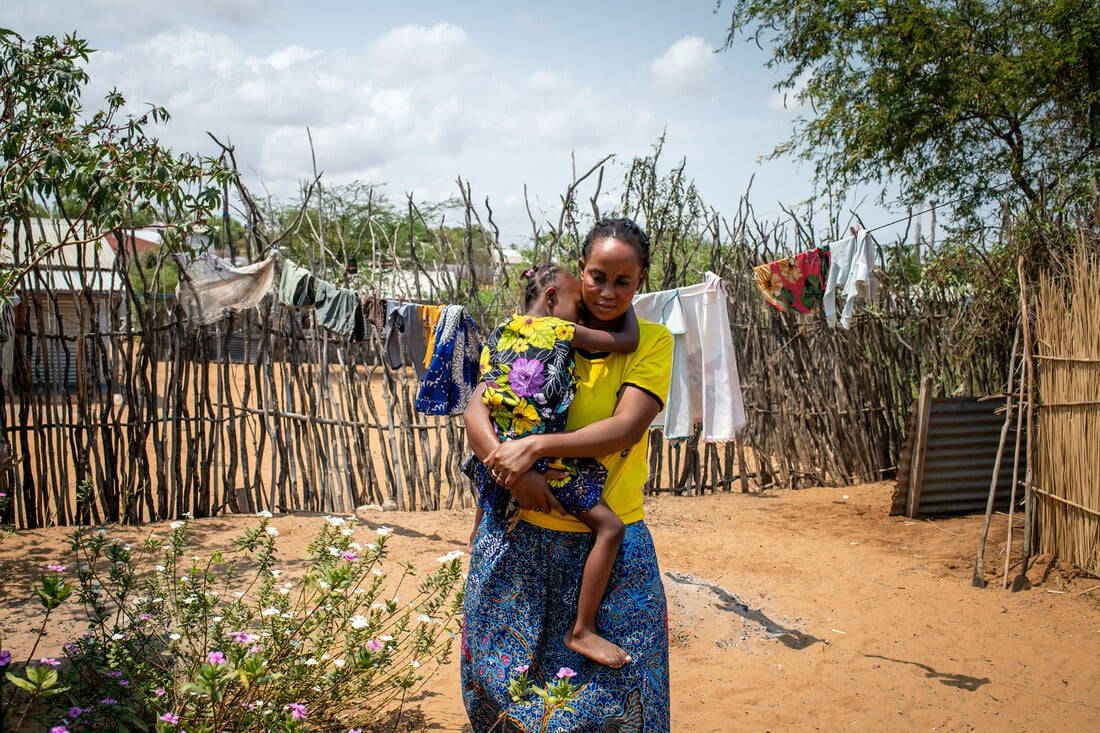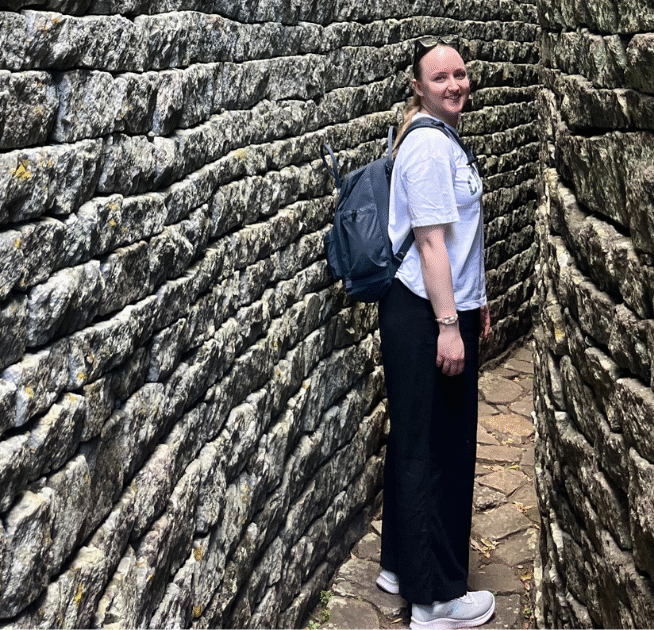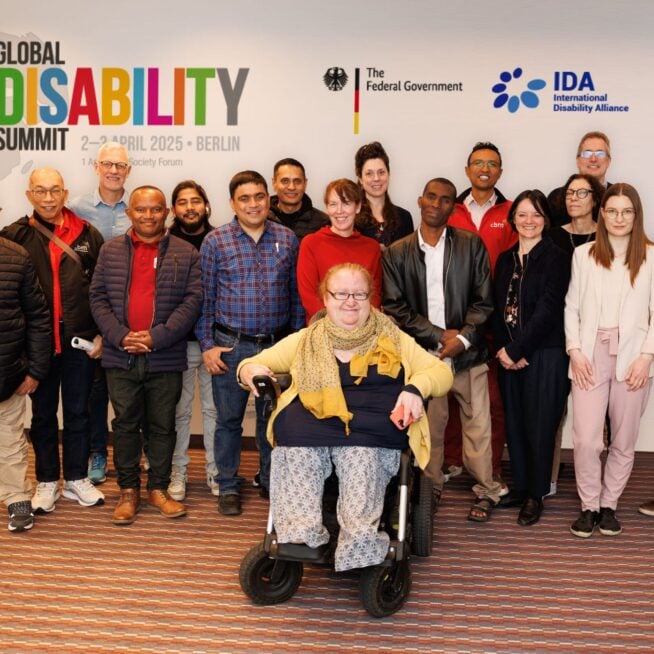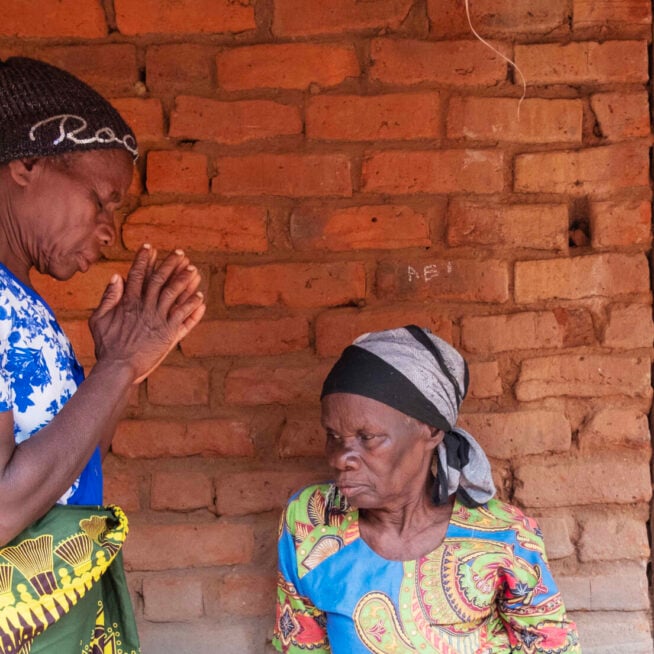“Economic hardship is detrimental to mental health. I like the fact that the Basic Needs Model incorporates Village Saving and Loans Associations.” Ezna Kettah, Sign Language Interpreter and Peer Educator, Koyango Support Group
Disability is not inability: Stories from Koyango Support Group
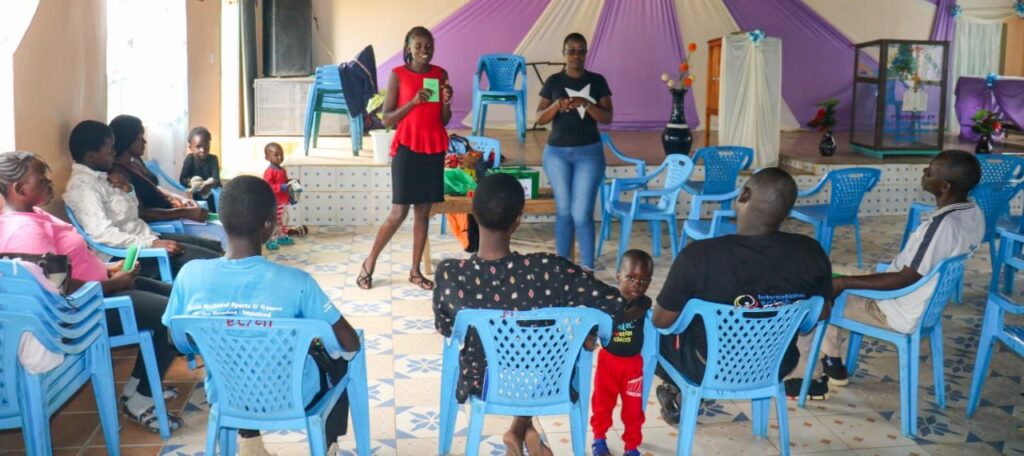
Ezna Kettah leads Koyango Support Group, which includes 14 members with hearing impairment, based in Kisumu East, Kenya.
Kettah says, “Persons with hearing impairment are at risk of stigma and discrimination because they are not able to engage in day-to-day conversations. They could be isolated because of their lack of hearing, needing hearing aids, and sign language. This could result in mental health problems.”
She says that her biggest challenge is the lack of a tangible source of livelihood for the support group members. However, she is slowly integrating the Village Savings and Loans Association (VSLA) model to empower and equip them with access to resources and use their group power to beat financial and social barriers by saving together and taking small loans from those savings.
“Economic hardship is detrimental to mental health,” She continues, “When you cannot sustain yourself, you run the risk of a mental health problem… you are stripped of your dignity.”
When we ask her what she likes about her experience, and what she dislikes, she answers, “I like the fact that the Basic Needs Model incorporates VSLAs. I also like the goodwill of CBM Global, their support is commendable! I dislike the state of mental healthcare, but we have made significant progress. We are making progress!”
The Basic Needs Model
Mental health is often addressed in isolation from economic empowerment, community development and social capital, despite the widely proven correlation between these factors and a person’s mental health.
The innovative Basic Needs Model takes a holistic approach to community mental healthcare. First developed in 2000, it has since been successfully implemented in 12 countries.
The unique model integrates;
- psychosocial support
- system strengthening
- livelihood support
- community development
to deliver a strategic approach to mental health that leads to significant and lasting improvements in people’s lives.
Obala’s story
Obala is cheerful. He is one of the 14 members of the Koyango Support Group for people with hearing impairment. With our sign language interpreter, the chat is seamless. His relationship with TINADA started years ago when the organisation had just begun its operations, but he says it has peaked with the Basic Needs Project Support Group.
“Persons with hearing impairment face a lot of challenges.” He gestures, “At least the support group is teaching us about loans and savings.”
He concludes by urging the partners that fund the support group to keep championing the noble cause and to link people like him with opportunities to ensure that they are sustained. When we engage him further about opportunities, he explains that he would be pleased to get a chance at the Olympics and athletics for persons with disabilities, or persons with hearing impairment like him.
“You see…persons with disabilities are marginalised…even oppressed…for example sporting activities will be going on around our community but nobody will care to include people like us.”
The Basic Needs project seeks to strengthen communities and improve mental health in Kisumu County. It is implemented in partnership with Tinada, Basic Needs Basic Rights Kenya and funded by CBM Global.
